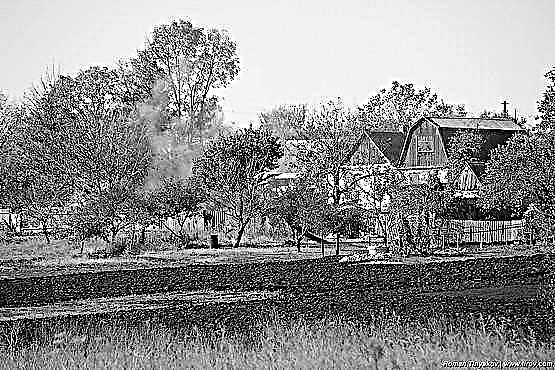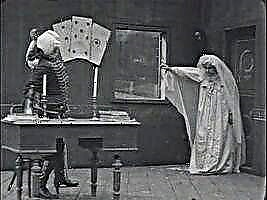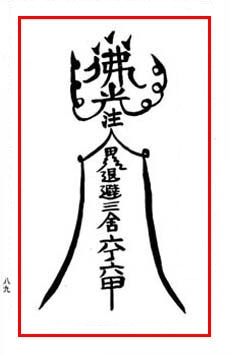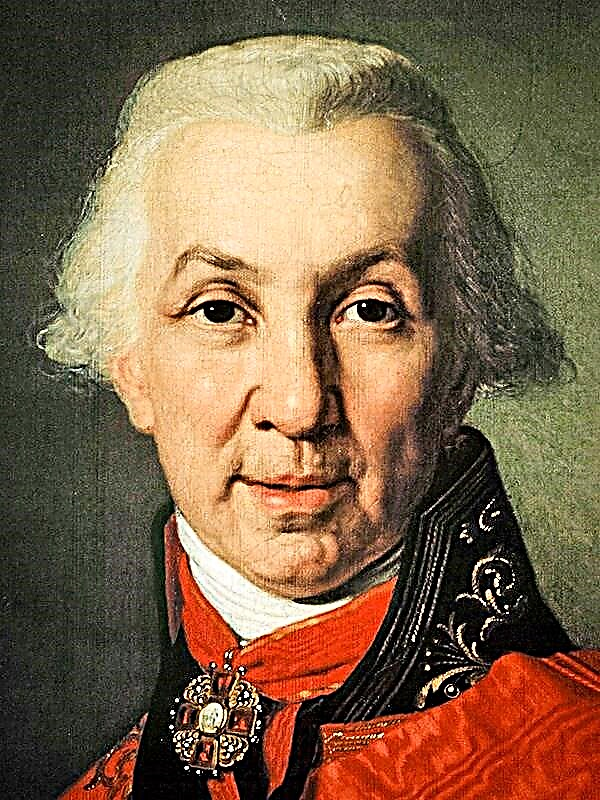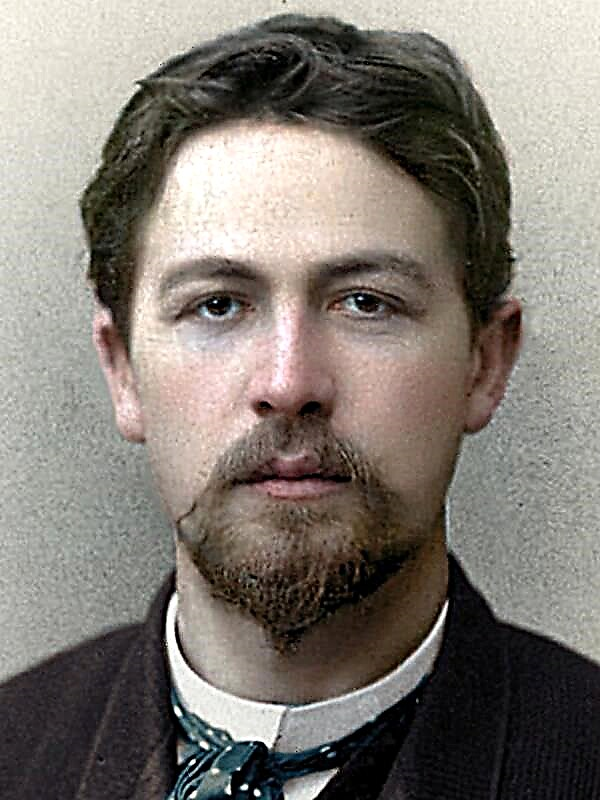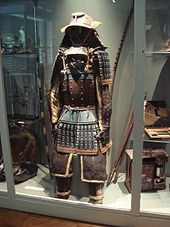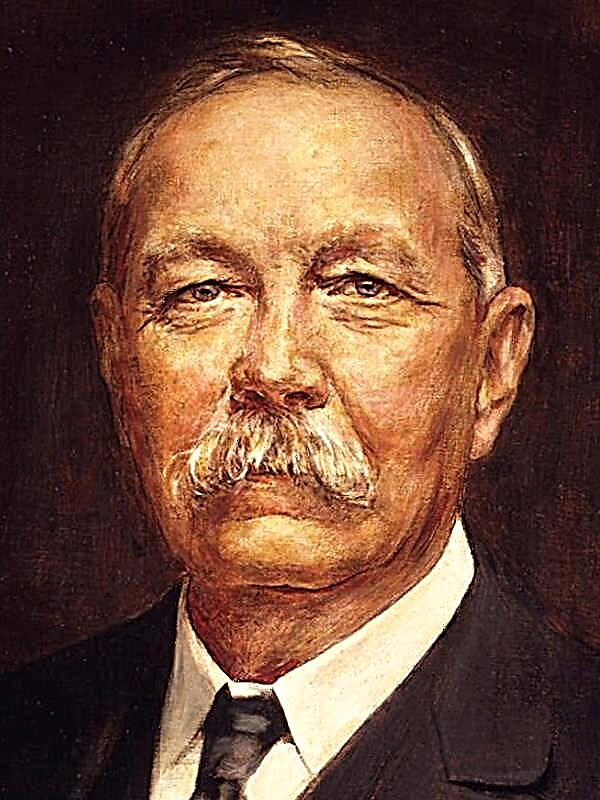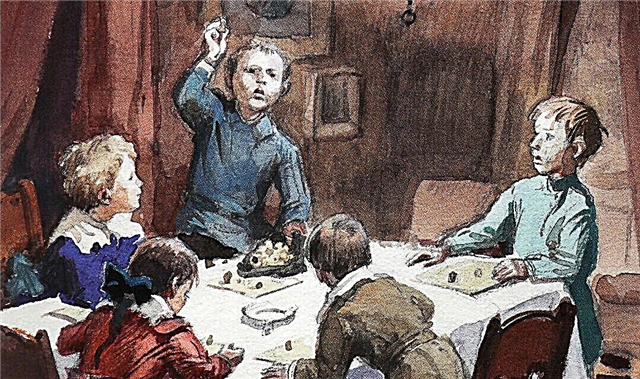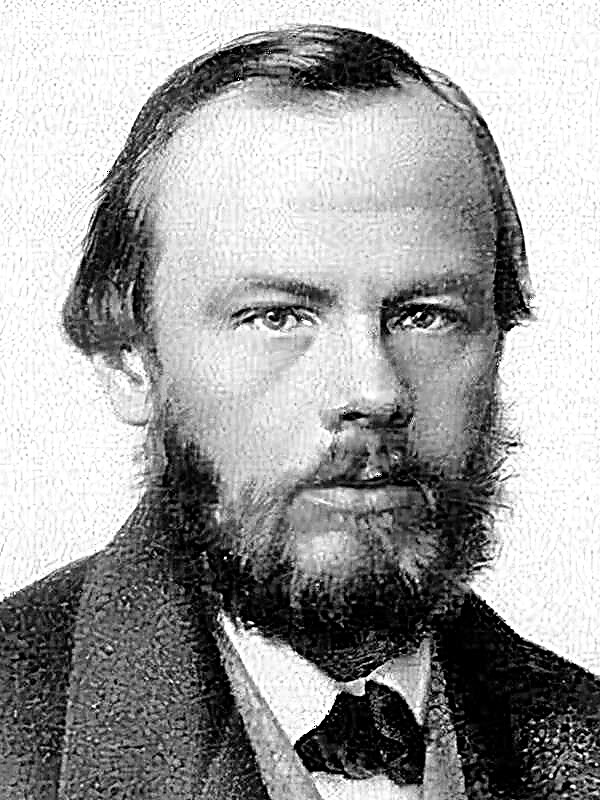The play takes place in a small German town in the first half of the 18th century. In the house of joiner Anton, known for his hard work and frugality, two women, a mother and a daughter. They started the morning with trying on and discussing an old wedding dress, and ended up talking about illness and preparing for death. Mother just recovered from a serious illness, for which she thanks God. She does not know any sins behind herself, but all the same she must adequately dress up for the “heavenly crown” while she is allotted time. She worries about her son Karl, who leaves for work earlier than anyone else, and comes back from work later than everyone else, but she does not know how to save money and really can not spend it, she always asks her mother. And she only has enough money for a modest economy.
A mother goes to church to pray for a daughter whom she must marry. Clara watches her mother through the window and wonders who will be the first on her way. Evil dreams completely tortured Clara, she feels her guilt before her parents. The first is the grave digger, crawling out of the just dug grave.
At this time, the bridegroom Leongard comes to the girl, with whom she last met two weeks ago, and this meeting turned out to be fatal for her. Then Frederick returned to the town, Klara’s first love, who was leaving to study as a “secretary”. At one time, her mother forbade Clara to dream of Frederick, and she became engaged to another, so as not to "stay up in the girls." Leonhard became jealous of Frederick and, in order to drown out his old love, he tried to “tie his most precious treasure to himself”, which he did rather rudely. When Klara, feeling defiled, came home, she found her mother in a sudden attack of a deadly disease. Now the girl knows that she "cannot live in this world" if Leonard urgently does not marry her, so that no one will know about her sin. But the father, according to his principles, will give his daughter for someone who not only loves her, but also “has bread in the house”. Leonard reassures Clara, he came to ask for her hand, because he had just received by hook or by crook the enviable place of the treasurer, which means he can feed his wife. He boasts to the bride how adroitly and shamelessly, having pushed away and deceiving another, more worthy, he has reached this place. The straightforward Clara does not hide her indignation, but from now on she is “confined” to this person by the morality of respectable burgherism. But Clara does not know all the true motives for the arrival of the groom. Leonhard heard that master Anton had invested a lot of money in the business of his former master and teacher, and he went bankrupt and died, leaving behind a large family. Leonhard needs to find out, "Surely the money has sailed away", does not Clara become a dowager.
The father already knows about the new service of the groom and shows complete frankness in the presentation of his money affairs, checking it. Master Anton long ago realized that he had lost his money, but decided for himself not to recover it from a sick old man who taught him a good craft for free. At the funeral, the master tore the debt receipt and quietly put it in the coffin - let him "sleep peacefully." Shocked Leonard still shows complete readiness to marry without a dowry, and an honest master holds out his hand.
Meanwhile, the whole family gathers in the house, with the exception of Karl. Father is always dissatisfied with him, especially if he plays somewhere in cards with money obtained by hard work. Mother, as usual, stands up for her son. And Leonard, fencing himself off from everyone as a newspaper, hesitates feverishly how he might not blame a fool for marriage. Suddenly, bailiffs appeared in the house, announcing that Karl was imprisoned on charges of stealing jewelry in the merchant’s house. Mother falls dead. Taking advantage of the turmoil, Leonhard runs away. Only master Anton hardly maintains his composure. He is waiting for new blows of fate. And here is a letter with a purse from the daughter of the groom - with an engagement break. The father advises his daughter to forget the "scoundrel", but, noticing her despair, begins to suspect something was amiss. He makes his daughter swear at her mother’s tomb that she is "as she should be." Barely possessing himself, Clara swears that he will never dishonor his father.
The master curses the criminal son, vilifies the whole world and himself. He is sure that in the eyes of “all honest people” he now looks like a loser and a liar. The master is afraid to look into the future, but hopes that his daughter will become a woman worthy of her mother, then people will forgive him for the guilt of his stray son. If it is not so, if people point fingers at Clara, she must know - father will commit suicide, he will not be able to live in the world where "people just do not spit in his direction out of pity." A daughter knows no worse than her father the morals of her environment and is also defenseless in front of her. Therefore, she is tormented by breaking her laws. Klara herself is ready to die, if only his father would live the entire term allotted to him by God.
In the absence of his father, Clara suddenly finds out that his brother is accused by mistake, he is released. The first thought of the unfortunate - now sin lies on her alone.
Then Secretary Friedrich comes into the house, still yearning for his girlfriend. He does not understand that he can associate her with a very unenviable groom. And she is eager for Leonhard, there is no other way, "he or death." A stunned secretary tries to hold her back. Then Clara opens her heart to him, because she has not ceased to love Frederick all these years, but now she must connect herself with another. Inspired by her confession, the secretary immediately asks Clara to become his wife, the rest will be settled. When the ingenuous girl confesses his sin to him, he, retreating, pronounces that “he will not be able to step over such a thing”. With determination to pay the villain for the honor of Clara, the secretary leaves.
Fueled by faint hope, Clara goes to Leonhard. She should by all means become his wife, so as not to bring her father to the grave. Although marriage with Leonhard is sorrow for her, may God help her in this; if not in happiness, then at least in grief, if fate so commands.
Leonhard is already preparing the approaches for marrying the daughter of the burgomaster. He is sorry for Clara, but everyone should "bear his cross." He does not expect the girl to come. Clara returns his letter to him, because the brother is acquitted, and there are no obstacles to marriage. She begs him to marry, otherwise the father will find out about the dishonor of his daughter and kill himself. Then Leonard asks her a terrible question - could she swear that she loves him in such a way as “a girl should love a man who will forever bind herself to her by marriage?”. As an honest and very direct person, Klara cannot give him such an oath. But she swears to him differently, that whether she loves him or not, he will not feel this, for she will find complete sacrifice and obedience in her. Clara promises that she will not live long, and if he wants to get rid of her earlier, then she can buy her poison, she will drink it and make it so that the neighbors won’t guess anything.
Clara’s passionate plea meets a cold rejection. Then followed condescending exhortations, accusations against the father who gave away the dowry of his daughter. This Clara does not want to listen. She thanks Leongard for letting him look into his soul - "to the very bottom of the underworld", now she can die in peace. Klara made a decision and that day "will leave this world."
Friedrich bursts into Aeongarda, who is in complete indecision, with two pistols - to fight for the honor of Clara. A villain dies in a duel.
Freed from prison, Carl comes home and shares his dream with his sister. He wants to go to sea from these philistine everyday life, where he is only allowed to “knock, saw, pin up, eat, drink and sleep.” Klara is glad to her brother, but she is preparing to die and turns to God with the words: "... I am coming to you, only to save my father!" She rushes into the well, hoping that people will take this as an accident. But one girl saw Clara jump herself. A father who finds out about this perceives his daughter's act as his shame. In vain avenged Clara Friedrich explains to him the reasons for the suicide of his daughter. He does not relent, because the sinning daughter was unable to hide her sin and protect her father from condemning rumors. Immersed in his thoughts, he says: “I no longer understand this world!”

